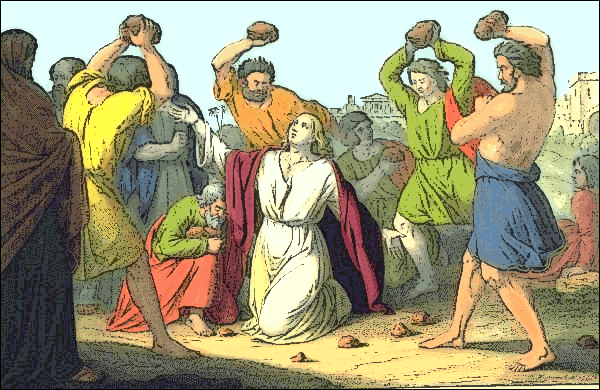The Greeks believed Pandora was the first woman on Earth. Pandora was a life-like robot. The Greeks believed she was manufactured by the god Hephaestus. Zeus told him, “I want you to build me an artificial woman who will be evil hidden in beauty.”
She was ordered to open Pandora’s Box and bring every source of unhappiness into the world. In Greek, “Pandora” means “the one who bears all gifts”. She did not bring good gifts!
Pandora was created to punish mankind. Zeus wanted to hurt people because Prometheus gave them the ability to use fire.
Zeus wanted to hurt people. There was no Salvation.
+
The Hebrews had a better understanding of the First Woman. They knew that Eve was made by God. They knew Eve was a real, living person. Hebrews understood that Eve let the devil lead her to willfully disobey God. Then, she got Adam to disobey God.
God did not punish Adam and Eve for using His gifts. He punished them for their disobedience.
The Hebrews knew that God threw Adam and Eve out of The Garden for disobedience. He also threw a third of the angels out of Heaven for being disobedient.
The Hebrews understood that God loved people and that He would punish willful disobedience.
+
There are similarities between Greek and Hebrew thinking. Were the earliest Greeks were descended from some of Abraham’s children by other wives? That would explain the similarities and the differences.
The Hebrew accounts of God and Eve are more credible than Greek accounts of Zeus and Pandora.
Still, some similarities are there.
+
Catholics know that God always punishes disobedience. We strive to obey The Church-Founding Word of Jesus.
“And I say unto you thou art Peter and on this rock I build My Church and the gates of hell shall not prevail against it. I give you the keys to The Kingdom of Heaven.”
If we choose to disobey Jesus, we know that we cannot go to Heaven, among “You are My friends if you obey My commands.”
Hebrews and Catholics understood that God loves people so much that He lets His obedient “friends” into Heaven.
. . . . . . . . . . . .
free e-books, essays, and posts are available: catholicfundamentalism.com









